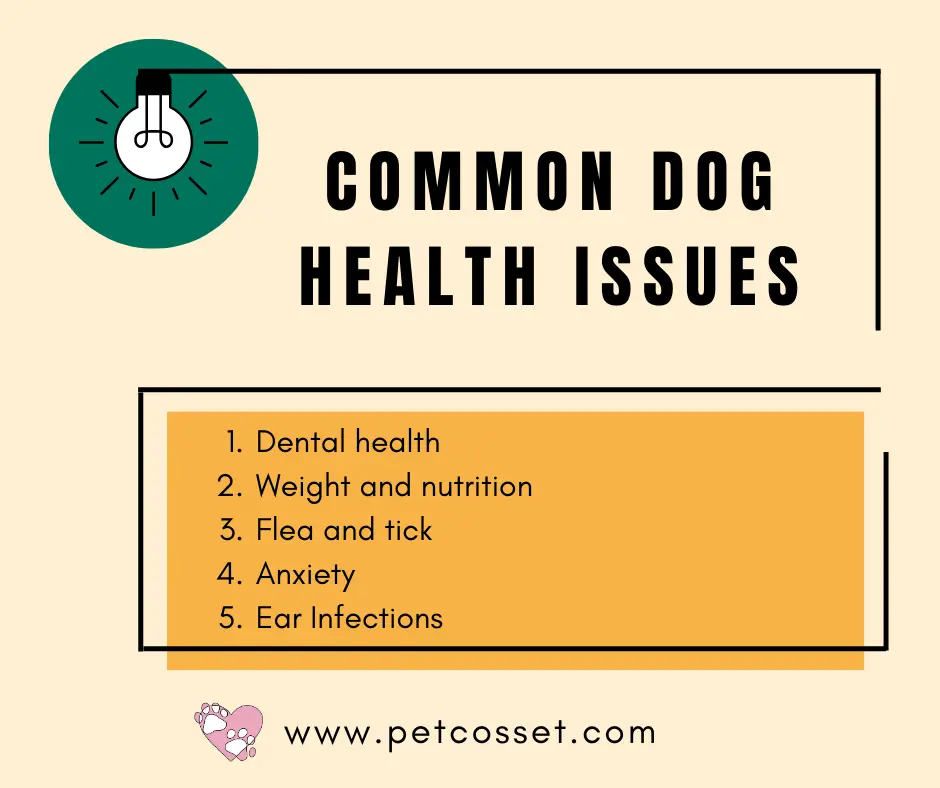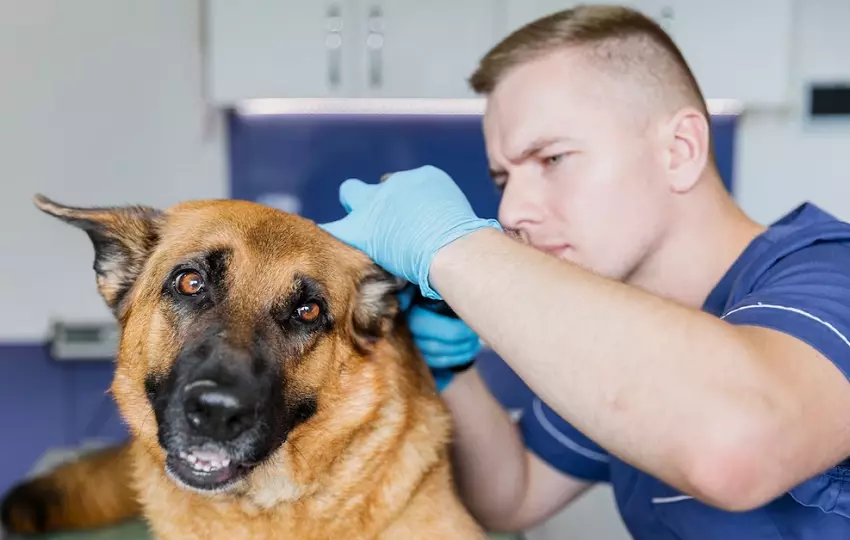Understanding and Preventing Most Common Dog Health Issues
Explore essential tips and common dog health issues for ensuring a healthy lifestyle for your dog and a fulfilling and happy life.
Common Dog Health Issues
A healthy lifestyle is crucial for dogs to live a happy and fulfilling life. Just like humans, dogs need proper nutrition, exercise, and preventive care to maintain their overall well-being. By understanding the importance of a healthy lifestyle, you can provide your furry friend with the best possible care.

Regular exercise is essential for dogs to maintain a healthy weight and prevent obesity-related health issues. Daily walks, playtime, and interactive toys can help keep your dog physically active and mentally stimulated. Additionally, providing a balanced and nutritious diet tailored to your dog’s specific needs is key to their overall health.
Preventive care is another vital aspect of a healthy lifestyle for dogs. This includes vaccinations, regular check-ups with a veterinarian, and parasite prevention. By staying up-to-date with vaccinations and scheduling routine veterinary visits, you can ensure early detection and treatment of any potential health issues.
Overall, understanding the importance of a healthy lifestyle for dogs is the first step towards providing them with the care they deserve. By prioritizing nutrition, exercise, and preventive care, you can help your furry friend lead a long, happy, and healthy life.

Managing Weight and Nutrition for a Healthy Dog
Maintaining a healthy weight is crucial for dogs to prevent various health issues, such as obesity, joint problems, and heart disease. To manage your dog’s weight effectively, it’s important to provide them with a balanced and nutritious diet.
Start by consulting with your veterinarian to determine the appropriate caloric intake for your dog based on their age, breed, and activity level. Avoid overfeeding and opt for high-quality dog food that meets their specific nutritional needs. Additionally, be mindful of portion sizes and avoid excessive treats or table scraps.
Regular exercise is also essential for weight management. Engage your dog in daily activities such as walks, runs, or playtime to help them burn calories and maintain a healthy weight. Remember to adjust the exercise intensity and duration based on your dog’s age and physical abilities.
By focusing on managing your dog’s weight and providing them with a nutritious diet, you can ensure their overall health and well-being.
Flea and Tick Prevention: Protecting Your Dog Year-Round
Fleas and ticks can pose serious health risks to dogs, including skin irritations, infections, and the transmission of diseases. Therefore, it’s crucial to protect your furry friend from these parasites year-round.
Start by regularly inspecting your dog’s fur for any signs of fleas or ticks. If you spot any, consult with your veterinarian for appropriate treatment options. Additionally, consider using preventive measures such as topical treatments, flea and tick collars, or oral medications to keep these pesky parasites at bay.
Maintaining a clean and hygienic living environment is also important in preventing flea and tick infestations. Regularly vacuum your home, wash your dog’s bedding, and keep outdoor areas free from debris and tall grass where fleas and ticks can thrive.
By implementing a comprehensive flea and tick prevention strategy, you can ensure your dog stays protected and healthy throughout the year.
Dental Health for Dogs: Preventing Gum Disease and Tartar Buildup

Proper dental care is essential for dogs to prevent gum disease, tartar buildup, and other oral health issues. Neglecting your dog’s dental hygiene can lead to pain, discomfort, and even tooth loss.
Regular brushing is the most effective way to maintain your dog’s dental health. Use a dog-specific toothbrush and toothpaste to gently brush their teeth at least two to three times a week. If your dog is not accustomed to brushing, start slowly and gradually increase the frequency over time.
In addition to brushing, providing dental chews, toys, or treats can help remove plaque and tartar buildup. However, it’s important to choose products that are safe and appropriate for your dog’s size and chewing habits.
Regular dental check-ups with a veterinarian are also crucial to identify any potential dental issues early on. Your vet can perform professional cleanings and recommend further dental care if necessary.
By prioritizing your dog’s dental health and implementing a proper dental care routine, you can prevent gum disease and ensure your furry friend has a healthy and pain-free mouth.
Recognizing and Addressing Anxiety in Dogs
Anxiety is a common issue among dogs and can significantly impact their overall well-being. It’s important for dog owners to recognize the signs of anxiety and take appropriate measures to address and manage it.
Common signs of anxiety in dogs include excessive barking, destructive behavior, restlessness, panting, and aggression. If you notice any of these signs, consult with a veterinarian or a professional dog behaviorist for guidance.
To help alleviate anxiety in dogs, create a safe and comfortable environment for them. Provide a designated space or crate where they can retreat to when feeling anxious. Additionally, establish a consistent daily routine and incorporate calming activities such as puzzle toys or relaxation exercises.
In some cases, professional intervention may be necessary. Your veterinarian or a qualified dog behaviorist can recommend behavioral training techniques or prescribe medication if needed.
By recognizing and addressing anxiety in dogs, you can help them lead a calmer and happier life.
Ear Infections in Dogs: Causes, Symptoms, and Treatment

Ear infections are a common health issue among dogs, particularly those with long ears or floppy ear structures. Understanding the causes, symptoms, and treatment options for ear infections is essential for dog owners.
Ear infections in dogs can be caused by various factors, including allergies, ear mites, bacterial or yeast infections, or foreign objects lodged in the ear canal. Common symptoms of ear infections include excessive scratching or rubbing of the ears, head shaking, redness or swelling of the ear canal, and a foul odor.
If you suspect your dog has an ear infection, it’s important to consult with a veterinarian. They can perform a thorough examination and recommend appropriate treatment, which may include medicated ear drops, oral antibiotics, or ear cleaning solutions.
To prevent ear infections, regularly inspect and clean your dog’s ears, particularly if they are prone to infections. Avoid using cotton swabs or harsh cleaning solutions, as they can cause further damage. Your veterinarian can provide guidance on proper ear cleaning techniques.
By being proactive in preventing and addressing ear infections, you can ensure your dog’s ears stay healthy and free from discomfort.
Conclusion
Maintaining a healthy lifestyle for your dog is crucial in ensuring their overall well-being and happiness. By understanding the importance of nutrition, exercise, preventive care, and addressing common health issues, you can provide your furry friend with the best possible care.
Remember to consult with your veterinarian for personalized advice and recommendations based on your dog’s specific needs. With proper care and attention, you can help your dog lead a long, healthy, and joyful life.
